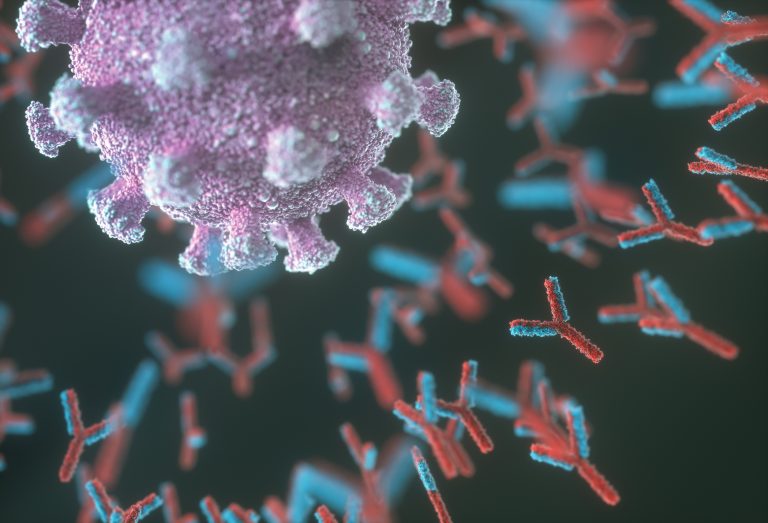
Swiss pharma and diagnostics makers Roche has developed a fast antigen test to detect infection with SARS-CoV-2, in conjunction with the South Korean diagnostics company SD Biosensor, which will be launched in various countries at the end of this month.
The antigen test is able to detect the presence of proteins associated with SARS-CoV-2 in 15 minutes, which is significantly faster than the standard RT-PCR test that is currently the gold standard for diagnosing COVID-19. The main difference from the PCR test, is that the antigen tests detect specific proteins associated with the virus rather than amplifying viral RNA.
The test is the second such collaboration between Roche and SD Biosensor, as they also launched an antibody or ‘serological’ test in July. Both Roche and SD Biosensor also have accurate PCR tests for COVID-19 on the market.
Antibody tests are able to detect if someone has been infected in the past and if they have developed some immunity to the virus, but are not a good read of current infection, as it can take at least a week for antibodies to be created by the body. The level of antibodies produced by someone with the virus are also thought to vary quite significantly depending on disease severity.
Two main measures are used to test the accuracy of most medical diagnostic tests, including those used to test for SARS-CoV-2, namely, sensitivity and specificity. Sensitivity is a measure of how many positive results the test gives are correct and specificity measures how many people are correctly identified as not having the infection.
RT-PCR tests have high accuracy if the samples are correctly collected. An organization in Switzerland called FIND is currently working its way through as many Covid-19 tests as possible to try and provide an independent review of their accuracy. It has not tested all the available tests yet, but results from five COVID-19 RT-PCR tests in a first round of checks showed that they achieved 100% sensitivity and a minimum of 96% specificity in a laboratory setting.
Antigen tests are quicker and inexpensive, but can have lower sensitivity than PCR tests. They have also taken longer to be developed, as they require well defined antibodies against the virus for use in the detection assays. They involve using a nasal swab and results show up as a ‘yes’ or ‘no’ to infection based on a colour change on the test device.
Roche and SD Biosensor’s new antigen test has a sensitivity of 96.5% and a specificity of 99.7%. This data was collected from 426 patient samples collected from two different study centers.
The test will be launched towards the end of September in countries that accept CE marking for diagnostic tests, a European regulatory approval system for medical devices and diagnostic tests. Roche will also file for FDA approval using the Emergency Use Authorisation route.
This test is not designed to replace PCR, but more to fill the need for a quicker test that can accurately detect if people are virus free and allow them to move through areas like airports without spreading the infection. People with a positive test can then be checked by additional PCR tests if need be.
“Especially in the upcoming flu season, it is important to know whether a person has SARS-CoV-2 or the flu to ensure the right course of treatment,” says Roche Diagnostics CEO Thomas Schinecker.
There are less antigen tests available than PCR tests, but there are a few now emerging onto the market. For example, US-based Quidel, a Californian diagnostics firm, also has also developed an antigen test.













